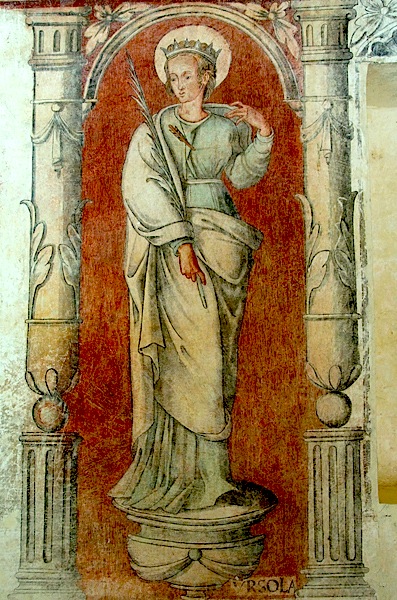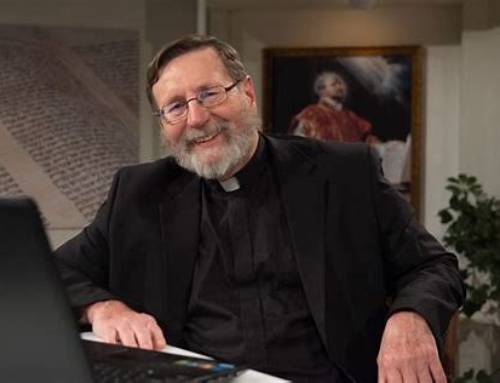At a pleasant social event the other evening, conversation turned to works of art, and, due to my interests, religious art in particular – Caravaggio to be exact.
We were trying to pinpoint a specific painting, of a martyrdom of a female.
“Martyrs are automatically saints, aren’t they?” someone noted.
At that point, a young man nearby, who is often nearby, but not usually a participant in our conversations, stepped in:
“What’s the point? Of being a martyr, I mean?”
While the 13-year-old’s tone indicated that he could see no point, but it wasn’t scorn in his voice. He seemed honestly perplexed by the prospect of martyrdom and was inviting us to help him understand.
The basis for his question was unclear. A young male with a huge Army poster in his bedroom and a penchant for “Call of Duty”-type video games, it’s possible he was wondering, “Why die when you can fight?”
I, and others, ascribed to him a different, more likely, question: “How could heaven be worth dying for?”
Someone, non-practicing but sympathetic, described something along the lines of “an eternal stability as opposed to discord and destabilization, forever.”
Not inaccurate, but rather clinical.
The 13-year-old shrugged and ambled off, seeming to get even lankier as he returned to swishing around his plastic bottle, half-full of some day-glow potable.
Unless I right it, that missed opportunity may haunt me for the rest of my life.
But how to describe to him the indescribable?
As a young child, my first conceptions of heaven were literally people wearing white sheets, on white clouds, playing harps. It was a good place, and I truly believed it was a good place, because the adults of my life who I loved and trusted told me it was a good place, and that was all I needed.
Later, I realized that singing songs and playing harps while standing around could get tedious, especially faced with eternity.
My vision of heaven – though seeded by love – had evolved with my conception of happiness: perhaps it was a place where you did your favorite things, with your favorite people (even deceased pets!), forever.
But picturing heaven get murky as happiness grows wispier and intertwined with selfishness. We might avoid thinking about it – better to be “basically a good person” and “live in the now.”
It gets worse. Father Jeremy Davies, a priest of the Archdiocese of Westminster in England and longtime exorcist, recently told The Catholic World Report that “those who seek a self-centered happiness ‘belong to Satan,’” and he was referring not to bodily possession but the state of much of the world.
The author of the piece, K.V. Turley, paraphrases the old priest on how we end up in that tragic place:
“Father Davies described how people at certain moments of their lives will weigh a decision about a matter – often, though not exclusively, in the realm of sexual mores – and then make a decision, or accept an argument, that moves them away from Christ. In so doing, they have subtly changed from being a child of God to living a lie.”
Physical beauty, vigorous health, an active social life, the admiration of our peers, a country home with acreage, horses – they may as well be mouthfuls of potato chips or gulps of a sugary drink.
We know this, from that nagging sense of dissatisfaction that piggybacks on all acquisitions, but also those times when our hearts see – or are shown – what we’ve missed all along.
For Scrooge, it was the empty seat at the Cratchits’ Christmas table. For Abby Johnson, a helpless baby attempting to escape the scalpel during an ultrasound-guided abortion.
Though unhappy, even sometimes horrifying, such sights are a forceful love language, calling the seers from lies to the truth.
As St. Ursula understood as she was martyred, there is nowhere else to go.






Leave A Comment
You must be logged in to post a comment.